We've been part of a CSA (Community Supported Agriculture) for many years now. Although I love both the wonderful food we get and the fact that we're helping to support a local farm, I also know how it feels to be drowning in veggies and overwhelmed by the fact that a lot of high-quality food will soon spoil if I don't make use of it quickly.
But being part of a CSA does not have to make you feel guilty or overwhelmed -- it can and should be FUN! With that goal in mind, here are six helpful tips I've gleaned over the last five years.
1. Get inspired!
When you find out what you're getting (we get an email from our farm the morning of our pick up) take a few minutes to think about possible meals you might like to make that week. I find that this helps get me excited about the possibilities and increases the likelihood that I will actually use everything and cook some really good meals.If you're looking for inspiration, you'll find lots of good recipes right here on this blog. But if my recipes don't quite do the trick, here are a few of my favorite sites and blogs: The Kitchn, Food52, Martha Rose Shulman's Recipes for Health series on NYTimes.com, 101 Cookbooks, Local Kitchen, Dash & Bella, Brooklyn Supper and Simply Recipes. And there's always Food Blog Search - a great blog search engine and Epicurious - a huge database of more commercial recipes including a lot from Gourmet, Bon Appetit, etc.
2. Only take what you want & will actually use.
If you find yourself humming "killing me softly with cabbage" on your way to get your veggies and you know deep down that you're not going to end up using that big bunch of parsley or those collard greens, I have some radical advice -- don't take them! Just leave them at your pick-up spot. Some farms have a box you can use where others who are more enthusiastic about that particular thing can nab it and most, if not all, farms have a plan for the food that goes unclaimed. Some share it out amongst their volunteers in lieu of payment and others deliver the unclaimed produce to a local soup kitchen or both. Either way it will go to hungry mouths that will appreciate it instead of rotting in your refrigerator and making you feel guilty.3. Wash the greens when you get home.
This sounds simple but I've found that I am about ten times more likely to actually make use of, say, spinach if I take a few minutes to wash and dry it right when I get it home. That way, rather than throw up my hands and order crummy take-out when I haven't started dinner yet at 6:30, I just grab the bag of cleaned spinach out of the crisper and quickly saute it with some minced garlic to make this delicious dish. This also holds true for arugula, kale, chard, herbs, lettuce and more. If you don't have the time to wash them, make sure to at least remove any rubber bands or ties holding them in bunches since those will make them rot more quickly.4. Don't forget freezing & canning.
If you've got too much of something, it's a great idea to make pickles or jam or just freeze a big bunch of chopped fresh greens or herbs for easy use later. Not only does it keep good food from going to waste, you'll thank yourself later when you're munching on some spicy pickled carrots or grabbing a bag of chopped kale out of the freezer to add to a stew in the middle of the winter. These pickled beets with cumin and cloves were born out of CSA-driven necessity and are now one of the highlights of our winter!If you're new to canning and preserving, I suggest you start here. And if you're not new to it but are looking for even more inspiration, there is so much great stuff out there! For books, I like the Ball Complete Book of Home Preserving
5. Consider signing up for just a half share.
After starting out with weekly veggie pick-ups from our first CSA back in Berkeley, we quickly made the decision to scale back to every-other-week since a massive box of vegetables each week was too much for us to use without it feeling like a job. After all, this should be enjoyable!While I actually love the way the CSA forces me to explore new recipes and plays a role in what I end up cooking, I don't enjoy being a complete slave to what I get from the farm. I like having the flexibility to make something that's not in the box or to pick something up at the farmer's market just because it looks great without having to feel guilty about it. So every-other-week works perfectly for me. Whether you're entering the wonderful world of CSAs for the first time or you're just feeling overwhelmed, this could be a good option for you.
6. Clear the decks before CSA pick-up day.
I use the fact that I know another big load of great, fresh stuff is coming soon to motivate me to use up the last of the veggies in our fridge. Plan a big salad as one of your meals, whip up a stir-fry, make a big pot of soup or start a batch of refrigerator pickles. You and your family will enjoy it and you'll be thankful for the space in your crispers when the new load of produce arrives. By the way, my crispers have not been this clean since we moved into our house a year ago - what a nice bonus to writing this post :)I hope these tips help you have fun with your farm share. Happy eating, cooking, pickling and freezing!
You might also like:
- The Eatwell Project: A Year of Seasonal Cooking from Our First CSA
- Greening Your Kitchen - Easy Ways To Make Your Home Healthier for Your Family & the Planet
- Cooking With Your Kids - Advice, Tools & Resources To Make It Fun & Fulfilling

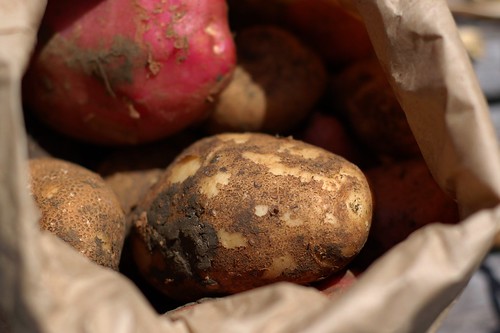
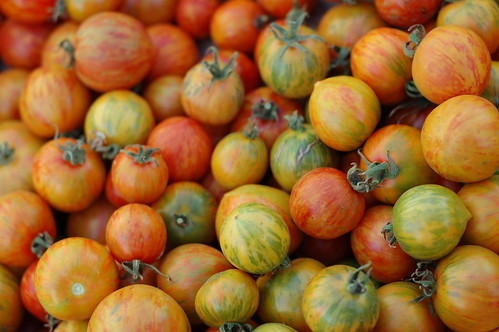
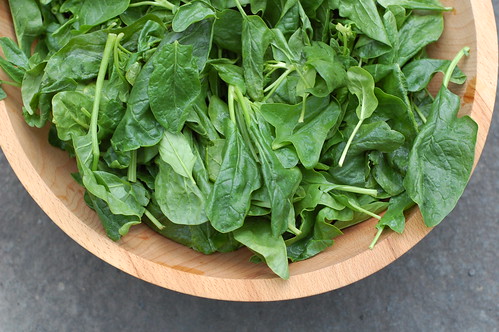
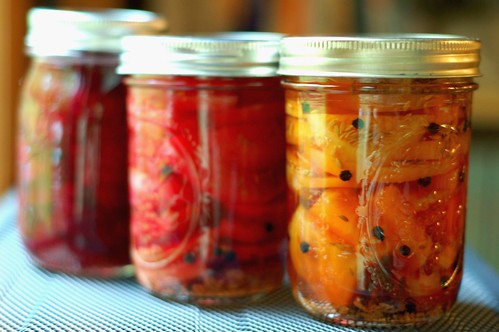

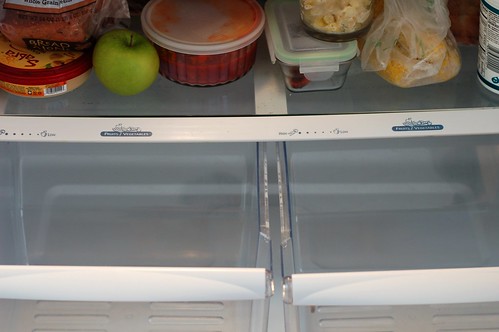

EmoticonEmoticon